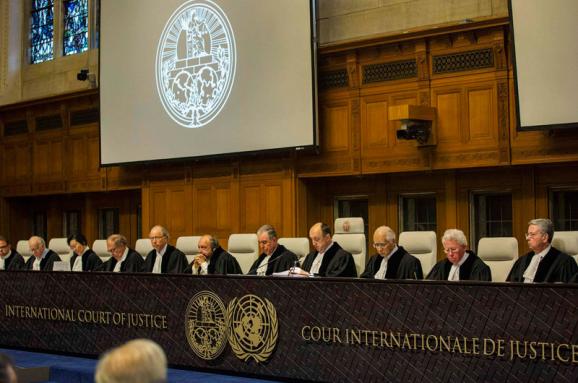Speaking in an interview with the website of the Strategic Council on Foreign Relations, Dr. Majid Safataj, referring to the International Criminal Court’s jurisdiction to hear cases of war crimes in the Palestinian territories, said: This is not the first time that a case has been filed in an international court. This issue has been raised in the past, but in other ways, it has either been suggested by some countries or it has been raised very imperceptibly.
Emphasizing that in none of those cases has the Zionist regime been in a similar situation to other regimes and the dictators, he added: In fact, this regime, due to its support from the United States and Europe, usually witnesses such propaganda against itself for a limited period of time. After a while, all such issues are forgotten again, and this regime continues the genocide of the Palestinians, the war crimes and destruction of the Palestinian residential areas.
Condemnation of the Zionist regime is also a propaganda action
Referring to the change of administration in the United States, the expert on West Asia affairs described the new administration’s support for the Zionist regime as more covert than before, saying: If the Zionist regime is convicted in this court, given the powerful role of the Zionist lobby in the United States and in some European countries, there are virtually no political consequences for that regime, and what will happen is just the same propaganda.
Safataj referred to the crimes of the Zionist regime in the 33-day war of 2006, the 22-day war of 2008, and the 14-day and 51-day wars against the people of Gaza in 2014, as well as the destruction of Palestinian residential areas and holy places and said: Condemnation of the Zionist regime for those crimes has not gone anywhere; if, for example, such crimes against the regime of former Sudanese President Omar al-Bashir were brought before such a court, there would certainly be a lot of practical action taken by Western countries; as we saw in connection with Mr. Muammar Gaddafi.
The researcher and author in the field of developments in Palestine and the Zionist regime continued: Unfortunately, with the structure that exists in those institutions and international organizations, it seems unlikely that this kind of filing a suit against t the Zionist regime will have much impact on the situation of the Zionist regime and, for instance, urges it to stop destroying Palestinian places and residential areas, abolishing establishment of Jewish settlements, and renouncing its policy of terrorism and massacre.
Ruling of Intl. Criminal Court not to have a tangible impact on the Resistance
He reminded: In the days when we are witnessing release of this verdict by the International Criminal Court, the repression of the Palestinians in Gaza is simultaneously continuing, we are witnessing the repeated and continuous aggression of this regime against Syria. In addition, other measures taken by the Zionist regime in the occupied Qods must be taken into account; therefore, I believe that although this issue may be covered in the media for a few days, it will not have any tangible achievements for the front opposing the Zionist regime, i.e. the Axis of Resistance, the Resistance of Palestine and the Palestinians.
Safataj added: The history of the Zionist regime is full of aggression, terrorism and racism, expansionism, as well as the massacre of people, and so far it has not paid any attention to the resolutions issued by the United Nations. The Zionist regime, which has received the most condemnation from the United Nations for those inhumane and criminal acts, has received the ultimate support from the United States and the same Westerners who are now using the Security Council as a pretext for their measures.
The researcher author of the Palestinian affairs, referring to the remarks of some Hamas leaders to the effect that this decision would be a significant development in protecting the Palestinian people, said: When the PLO became a member of the United Nations many opposed it, but some said it could support the Palestinian people; but in practice, however, not only they were not supported, but their situation worsened day by day, and massacres and settlements increased.
He continued: The restrictions in Gaza increased, and the people in the occupied territories in 1948, 1967, and in the Gaza Strip, had more problems. It now seems that the importance of the vote and the role it can play has been somewhat exaggerated.
stressing that he considered the great achievement of this issue for the Palestinians a mirage rather than a reality, Safataj underlined the need for exerting pressure on that regime in other ways and noted: It should be borne in mind that this issue can have psychological effects on the Palestinian people, but it is unlikely that it will be able to determine the fate of the Palestinian people in a different way and practically intends to abolish the Zionist regime’s apartheid altogether, and according to which the Zionist regime will not resort to aggression and abandon establishment of Jewish settlements or leave the occupied territories.










0 Comments